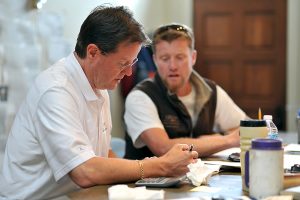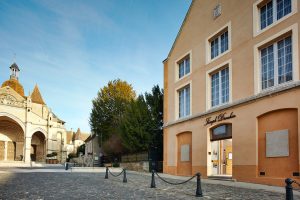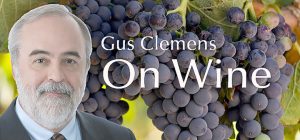“Vigneron” “vintner” “négociant” are wine terms. What are their exact meanings? This being wine, they don’t really have exact meanings. Here is an overview.
A “vigneron” generally refers to a person who grows grapes. In the past, vigneron narrowly meant a person who physically pruned vines, while a “viticulteur” referred to a wine grower. Today, vigneron covers everyone involved in grape production in the vineyard.
“Vintner” has two different meanings. In North America, it most often refers to the people in the winery who make the wine. Vignerons grow and deliver grapes to the vintner who then shepherds the harvest into wine bottles.

Outside of North America, starting in England in the 14th and 15th centuries, a vintner was a person who sold wine. Beginning in the 14th and 15th centuries, vintners became very important fellows. Four mayors of London were vintners during Edward II’s reign (1307-1327).
The Worshipful Company of Vintners is one of the oldest livery companies in London (“livery” refers to a trade association, not horses). Its coat of arms features three wine barrels. Having evolved from guilds, livery companies often held exclusive rights to sell their specific product until the 20th century. The City of London’s 110 livery companies also hold political power. Senior members elect the City of London sheriff and approve candidates for the election of the Lord Mayor of London, among other prerogatives.

“Négociant” is a French term that, more or less, combines the two meanings of vintner. A négociant can buy grapes or “must” (the mixture of grape juice, stem fragments, seeds, grape skin, and pulp produced by the crusher-destemmer) or buy finished wine. The négociant then produces wine, often blending imperfect parts to make a better whole, and bottling them under their label.
Négociants play a particularly important role in Burgundy where many growers have such small holdings they cannot economically produce wine. Just to keep things confusing, some large négociant operations now have significant holdings of their own—meaning they now are vignerons, vintners, and négociants. Louis Latour Jadot and Joseph Drouhin are such operations with significant sales volume in the U.S.
I hope that clarifies everything for you.
Tasting notes:
• Backsberg John Martin Reserve Sauvignon Blanc, South Africa 2016: Smooth, creamy, tasty, easy drinking. $14-20 Link to my review
• A. Christmann Riesling, Pfalz 2018: Solidly delivers minerality, finesse, and elegance. $15-22 Link to my review
• Chehalem Pinot Gris, Chehalem Mountains, Willamette Valley 2019: Impressive, food-friendly acidity, lower alcohol. $19-22 Link to my review
Last round: To the guy who invented zero—thanks for nothing. Wine time.

